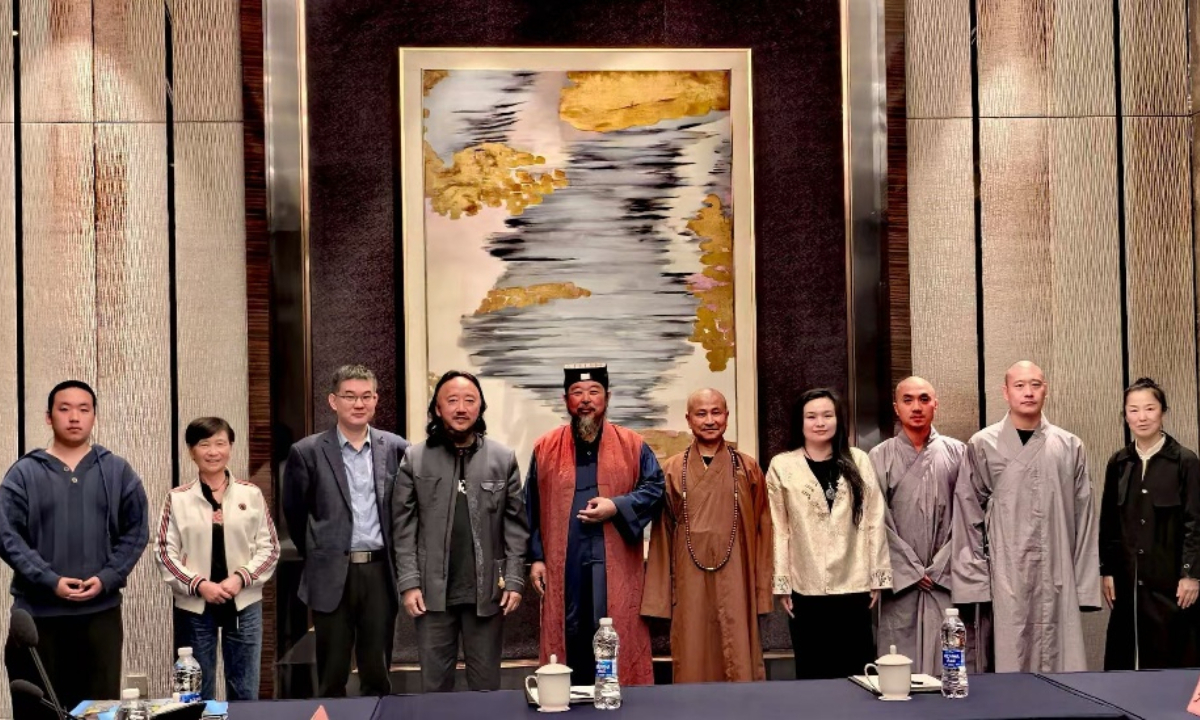 mk Zhejiang Province, on October 7, 2024, to recall Jin Yong’s contributions to promoting Chinese martial arts. Photo: Courtesy of Chinese Studies of Literature on Martial Heroes" />
mk Zhejiang Province, on October 7, 2024, to recall Jin Yong’s contributions to promoting Chinese martial arts. Photo: Courtesy of Chinese Studies of Literature on Martial Heroes" />Representatives of the Seven Great Wuxia Sects in China gather in Yuanhua, Zhejiang Province, on October 7, 2024, to recall Jin Yong’s contributions to promoting Chinese martial arts. Photo: Courtesy of Chinese Studies of Literature on Martial Heroes
As this year marks the 100th birthday of renowned wuxia novelist Jin Yong (Louis Cha), representatives of the Seven Great Wuxia Sects in China (Shaolin, Wudang, Emei, Qingcheng, Kunlun, Kongtong, and Mount Hua) gathered on Thursday evening to recall Jin's contributions to promoting Chinese martial arts and discuss the development and future direction of
wuxialiterature.
The Fourth Wuxia Literature Golden Sword Award ceremony is also set to be held in Jin's hometown, Yuanhua Town in East China's Zhejiang Province, on Friday.
Representatives of the Seven Great Wuxia Sects said the popularity of Chinese martial arts culture should be integrated with efforts to bring martial arts back to its roots, achieving a fusion of culture and tourism. Jin's influence spans beyond one or two generations and his legacy continues to endure and inspire.
"
Wuxiaculture, as an important part of traditional Chinese culture, not only carries ancient legendary martial arts skills but also contains profound philosophical wisdom, moral values, and humanistic spirit," You Xuande, an inheritor of Zhang Sanfeng tai chi from the Wudang Sect, told the Global Times.
"Through strategic thinking,
wuxiaculture can form a unique cultural brand, becoming an important component of national cultural soft power, and thus promote the spread and recognition of Chinese culture on the global stage," he noted.
Recalling his interactions with Jin Yong, You shared that when the Wudang Sect presented the traditional Wudang Sword to Jin, he later wrote, "If there's a chance, I would like to be an apprentice" to the Wudang Sect. This gesture reflected Jin's deep respect and admiration for Wudang martial arts, as well as his profound understanding and recognition of the martial spirit.
"Jin Yong's works not only shaped countless classic characters and riveting stories of the
jianghu(martial world), but also subtly spread profound Chinese traditional culture to the world," Liu Suibin, the 36th-generation leader of the Qingcheng Sect, told the Global Times.
"Many people first learned about the Qingcheng Sect through Jin Yong's portrayal of the antagonist Yu Canghai in his
wuxianovel
The Smiling,
Proud Wanderer," Liu explained. "Although I don't sympathize with the character of Yu Canghai, I am deeply grateful for Jin Yong's creative work."
"Jin Yong brought the Qingcheng Sect's martial arts to the attention of the world. His novels have played a key role in promoting Qingcheng martial arts. His works are not only popular in China but have also spread overseas. The contribution Jin made to Chinese martial arts deserves great respect," Liu added.
Jin's hometown is currently planning to establish a cultural industry park with a forward-looking vision to drive local tourism through martial arts culture.

 mk Zhejiang Province, on October 7, 2024, to recall Jin Yong’s contributions to promoting Chinese martial arts. Photo: Courtesy of Chinese Studies of Literature on Martial Heroes" />
mk Zhejiang Province, on October 7, 2024, to recall Jin Yong’s contributions to promoting Chinese martial arts. Photo: Courtesy of Chinese Studies of Literature on Martial Heroes" />